“I do not understand, myself, what the necessity is for the government entering into the show business in the Yellowstone National Park. I should be very glad myself to see it surveyed and sold to private enterprise.”
— Senator John James Engalls (R-Kansas), 1883
“Same as it ever was, same as it ever was, same as it ever way, same as it ever was.”
— The Talking Heads, 1981
The forming of a political identity is a deeply personal thing, shaped by personal experience. Some of us develop that awareness gradually, forming our personal ideology over a long period of time, while others of us get poleaxed into our worldview by a single act or incident that fundamentally molds us into who we are.
My political awakening was the latter, and it came to me in the fall of 1995, on the lonesome, windswept mixed-grass prairie of Black Kettle National Grasslands in far western Oklahoma.
The national grasslands of the southern plains constitute some 230,000 acres of reclaimed mixed and shortgrass prairie that were, up until the 1930s, individual homesteads; quarter and half-section dryland farms blown away and abandoned during the Dust Bowl years.
These abandoned farms, thousands of them, were subsequently repurchased by the federal government under the Bankhead-Jones Farm Tenant Act, a Department of Interior program designed to return some of the most severely eroded land back to its native state.
In the decades since, the national grasslands, despite sometimes being mismanaged, have turned into islands of reclaimed native prairie even as the plains surrounding them have been relentlessly converted into ag production.
These grasslands also happen to offer some of the finest, and in many cases only public hunting (and even some fishing) opportunities in the region.
That’s what I was doing on the grasslands in the fall of 1995.
I was a poor, suburban, quail-crazy college kid from Norman, Oklahoma with exactly zero private-land opportunities to hunt quail (or deer, or ducks, or squirrels, or anything). I would be a public-land quail hunter, or I wouldn’t be a quail hunter at all.
So I loaded up my dog and drove west into the heart of the plains, and essentially never came back. I had found my place, out there in the middle of nowhere, on ground no one could kick me off of.
Or so I thought. As it turned out, I wasn’t the only one who coveted the grasslands.
In the mid-term elections of 1994, Republicans gained control of the House of Representatives in what they grandly called a “revolution.” One of the dozens of first-time Republican representatives elected to Congress that year was a rancher from Cheyenne, Oklahoma named Frank Lucas, and Frank Lucas coveted those grasslands, too, for vastly different reasons.
Lucas rode into office on the same sort of economic and cultural dog-whistle themes used by most of Oklahoma’s conservative Congressional delegation.
Selling off some of the best quail hunting in the nation, however, wasn’t part of his stump speech. But not long after being elected, Lucas introduced legislation that would sell off 56,000 acres of national grasslands and other federal lands in Oklahoma to (who else?) local ranchers and farmers.
In return for the permanent loss of these 56,000 acres of public land Lucas proposed using the proceeds from the sale to fund a 300-acre park and battlefield monument…in his hometown.
I was stunned. How could someone just steal 56,000 acres of my, our, land for the benefit of his cronies?
I remember feeling powerless and angry and robbed and disillusioned. And I remember swearing that from then on I would look at politicians not through the filter of what their words tell me they will do, but the reality of what their actions and associations show me what they are doing.
As it turns out, I wasn’t the only one feeling that way. Lucas’ plan was such an obvious and transparent land grab that even in deep-red Oklahoma the reaction from his constituency was swift and furious. First Lucas dropped part of the land sale scheme, then under further pressure he dropped the rest, and today you can still follow a dog, draw a bow, or cast a line on every single one of those 56,000 acres of your land.
It was a triumph of bipartisan bullshit recognition, a rejection of—at least partly—some of the most extreme of the Gingrich revolution’s interpretation of government, and an affirmation of the worth of our public lands, if only on a regional scale.
And now, some 31 years later, here we are on the precipice of a far larger, more ominous, well-funded, and well-organized assault on our public lands, and we seem more divided than we’ve ever been.
Why? And how? How the hell did we get to the point where there’s significant acceptance of the myth that our public lands are better managed by being “returned” to the states? How did we get to the point at which otherwise sane, rational people are led to believe that federal control of federal lands is some sort of despotic, tyrannical affront to freedom and “true” America? Why are we being bombarded with an all-out mugging of cherished and long-standing political ideals, an assault wrapped tightly in the American flag and served with a heaping side of culture war red meat? And why are so many of us either believing it outright, or tolerating and legitimizing it? Have we become so entrenched in the self-affirming politics of the echo chamber that we can’t see past the frothing trivialities that seem to distract what little critical thought we can muster these days?
Too often, it seems, when we do discuss real issues and real consequences we generally do it from a position most often supplied to us from the vested interests whose job it is to influence us and get us worked up into a fake, corporate-sponsored populist outrage so we can then vote back into office the very assholes who caused the problems in the first place.
So much so that, eventually, what they say is true, becomes truth …
And now, some 31 years later, here we are on the precipice of a far larger, more ominous, well-funded, and well-organized assault on our public lands, and we seem more divided than we’ve ever been.
“Shifting Baseline Syndrome” is an ecological term biologists use to describe the gradual changing of perceptions of the natural state of an environment. In a nutshell, shifting baseline syndrome states that each generation defines what is normal based on current conditions and its own experiences and observations, rather than historical data.
Therefore, the baseline of reality shifts from one generation to the next. It may be an ecological concept, but the premise applies beautifully to the modern socio-political world. In true Orwellian fashion, if you can tell a lie long enough, eventually that lie becomes truth, and people accept that lie because the point of reference for recognizing it as such has moved.
And that is exactly what has happened in the public lands debate. Our collective national baseline on how we view public lands is currently shifting under our feet, and if we don’t do something soon, what once was accepted as fact will be simply pummeled out of existence by the forces that want to see a new normal, one minus about 640 million acres that once belonged to us.
Greed, of course, is the motivator. The opportunity to take and exploit a public resource for private profit by the wealthiest among us is the ultimate goal of those who are pushing so hard to eliminate the concept of public lands. Always has been, always will be.
Take the concept of “returning” federal lands to the states, which is one of the favorite buzzwords of the divestiture movement. It sounds so reasonable: Just return those lands from whence they came. What’s wrong with that, right? We had them first, now just give them back.
Really? When exactly was the war in which the sovereign nations of Nevada, or Wyoming, or Montana, or Utah were defeated on the field of battle by the evil warriors of federal bureaucracy, the states’ lands wrested away from their brave, valiant citizenry and placed under the draconian federal overlords, doomed to become just another spoil of war of the occupying United States?
It has no basis in history, certainly no basis in fact or reality, but it is a shining example of how buzzwords—no matter how factually, historically, or legally bullshit they may be—matter to those who are too uninformed, too duped, too ignorant, or too ideologically blind to see them for what they are.
Too often, it seems, when we do discuss real issues and real consequences we generally do it from a position most often supplied to us from the vested interests whose job it is to influence us and get us worked up into a fake, corporate-sponsored populist outrage so we can then vote back into office the very assholes who caused the problems in the first place.
The groups who are after our public lands are cynically creating a mythos based entirely on a false notion of where those lands came from, how they were created, and who really owns them.
Obfuscation of reality is their stock-in-trade, and they do this by endlessly vilifying and warping history to the point where the mention of "public" anything becomes a sort of societal dog-whistle trigger warning for "socialism” or whatever other liberal boogeyman they happen to be using at the time.
Perhaps the most asinine, sublimely ridiculous example of this was the infamous “Green Decoys” campaign from a few years back, wherein a completely bogus, industry-funded shell group called the Environmental Policy Alliance portrayed groups like Trout Unlimited, Backcountry Hunters and Anglers, and the Theodore Roosevelt Conservation Partnership as radical environmental Trojan Horses hell-bent on secretly and insidiously trying to destroy hunting, fishing, shooting, guns, Jesus, country music, red meat, mom, apple pie, and the Constitution.
The irony of a very real right-wing conspiracy mill putting out a fake conspiracy theory about alleged left-wing radicals infiltrating hunting and fishing groups is the height of lunacy, but some people actually believed it.
Even today, I still see pitifully misinformed people referencing that particular fairy tale. The Environmental Policy Alliance doesn’t really exist, of course. It never did. It was simply a front, one of dozens, for a well-funded corporate lobbying group that specializes in vicious hatchet jobs disguised as science and research.
Fake groups like this don’t care if their message is demonstrably ridiculous, just as long as enough stupid people believe it. ALEC, the American Lands Council, Federalism in Action, The Environmental Policy Alliance, all these groups inhabit the same dark, grimy corner of American politics. They wrap themselves in the American flag and the cheap tchotchkes of the false patriot while their willing lapdogs in Congress and in statehouses, executive branches, and courtrooms all across the nation sell us down the river.
And now here we are in 2025, with the drumbeat of returning public lands to the states once again booming out across the thought channels. Some things never change, never go away. They just evolve and come back under a different guise.
Now, as then, there is one very good—if insidious—reason for the push to transfer our national lands back to the states, and that is the states’ absolutely atrocious record of keeping their public lands, you know, public. It’s much easier, cheaper, and lower-profile for lobbyists to have their way in statehouses than it is in Washington. Let’s face it: your state legislator is a much cheaper prostitute than your congressperson. Crude perhaps, but that’s exactly how the other side views the legislative process.
Ultimately, however, we’ve put this gun to our own heads. As corrupt and stacked against us as the American political system sometimes seems, as full of rotting, putrescent greed as it obviously is, we are still a participatory democracy with the ability to vote people in or vote people out. So why do we keep tripping over our feet, keep voting against our own self-interests?
I’m speaking specifically to hunters and anglers and gun owners here, because that’s what I am. I find it mind-boggling that so many of us continue to think that anti-hunting groups are the top threat to hunting and fishing in this country, when the real existential threat to outdoor recreation is busy cranking out one false strawman outrage after another in hopes of keeping us angry and divided and distracted enough to not notice or not care what their real endgame is.
The right and ability of common citizens to hunt and fish—regardless of class or social station— has always been an integral and (if often overlooked or outright ignored) foundational part of our uniquely American flavor of democracy.
But when we as a society reach the point at which hunting and fishing loses its populist, egalitarian roots; when we no longer have public land on which to hunt, fish, and recreate, that is the point at which we've lost the battle and lost a vitally important part of who we are.
Access, opportunity, and affordability for all are the foundations of our political power. When that disappears, when ordinary people get locked out and priced out of the system and hunting and fishing increasingly become commoditized and monetized as the exclusive province of the privileged few, that's when hunting and fishing as we know it will disappear.
And it won't have a damn thing to do with anti-hunters, or socialists, or the gun grabbers, but everything to do with our inability to see the forest for the trees.
Some of the absolute worst, most anti-environment, anti-public lands people in Washington today self-identify as hunters, and it amazes me how these politicians, these crass, shameless opportunists, seem to think they can count on our vote just because they wear orange and camo and hunt, mostly for photo opps.
All they have to do is trot out the gun-control boogeyman, the liberal boogeyman, the anti-hunting boogeyman and we say "oh hell, we can't have that, they’re gonna take our guns away!"
And when they’ve whipped us into an outraged frenzy, they’ll turn and vote for corporate-approved, corporate-written legislation brought to them by folks —very rich, very powerful folks—who are diametrically opposed to and actively work to destroy almost every single conservation value we as hunters and anglers hold dear, all because they hold up a gun and say, "look at me, I'm one of you!"
It’s insulting, it’s cynical, and it works. Why are we so congenitally ill-informed, so brainwashed to the politics of the dog whistle? Why do so many of us care so much more about a nebulous threat from “the other” than we do the very real threat to our public lands? Why are we too distracted, too easily swayed, too tired, too worried, and too worked up about things that simply do not matter, and discount the things that do? Why are we so easily fooled into going against our own self-interests, and for theirs?
I don’t know. I wish I did.
Earlier this season I loaded up the dogs and took a drive to that same piece of western Oklahoma public ground that— all those years ago— showed me who I truly was, and who I remain to this day. It’s a pilgrimage I take every so often, to reconnect to that landless, bird-and-dog-crazy kid within me.
As I walked and the dogs ran, the grass whispered its story to me—as it always does—and I wondered how long I’d be able to return to this place. Legally, anyway.
It’s a question a naïve kid once thought had been settled, but the fundamental truth I have learned in the ensuing years since then is that anything worth keeping, worth cherishing, worth protecting and passing on, will always be coveted by those who wish to take it for themselves.
You either fight for it, or you lose it.



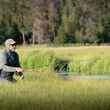
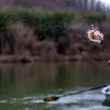
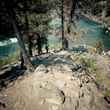
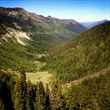





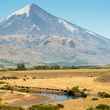



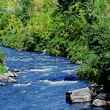










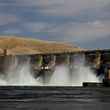

Comments
Tom Bie replied on Permalink
This is the finest essay I've read on the current desire to privatize our public lands. I don't know Chad Love, but this is what heartfelt, honest, and accurate writing sounds like. You can take every example he gives, and there is a parallel point for anglers. Thank you, Chad, for writing this, and thank you, Hatch, for running it. If it moves you to take action, all the better.
C Mathews replied on Permalink
I appreciate your insight, I’ve never considered your points about Federal Lands, being a States rights advocate myself. Greed certainly can motivate people and a clear understanding of the issues is hard to find. I don’t even use Federal lands myself in any way and rarely visit parks but I understand politics and how things get twisted and the citizens can be fooled.
Paul Mesojednik replied on Permalink
This article rang so true with me. I reside in Montana - out my front window sits the Gallatin river and range, 300 yards to the west , behind me lies the foothills of the Madison Range and the rest of the Lee Metcalf Wilderness. These areas are where men , women and families of different minds and political persuasions , explore, recreate, hunt, fish and immerse themselves in the joy of public lands - resources too valuable to lose to private hands. Shared to facebook with sincere thanks to the author for firing me up about once again on what we stand to lose
Mark van Roojen replied on Permalink
Thanks for this. In general public lands are popular. My sense is that usually the Federal Government is harder for particular economic interests to capture. So, in general, public lands are more secure when held by the Feds than by a state. In recent years the movement to give such land to the states has been a disguised move to allow private economic interests to control what happens to them. The popularity of public lands is a counterweight. It could, in principle, be otherwise and I suppose it may depend on the shape of the federal government in the near future. I'm worried.
But yes to all of what you write here.
Tim Carpenter replied on Permalink
Well said! This has become my most important focus when it comes to voting. A few years back, I was in British Columbia on A Steelhead fishing trip. I met these men from Austria, obviously “well-healed”, who were fishing the same river. They told me about their private fishing club in Austria and how they were assigned their time and beat to fish. They asked me where I did most of my fishing. I proudly told them, anywhere and anytime within the regulations! Another reason why public lands are so important. I belong to and financially support BCHA, TU, and The Wild Steelhead Coalition , and encourage other sportsman do to. Keep up the fight!
Ted Eisele replied on Permalink
Excellent analysis, Chad. Living in Idaho we are on pins and needles as our legislatures (as well as neighboring states like Utah and Wyoming) try to push “returning” (which is inaccurate) public lands to the states. It makes absolutely no sense if you take the time to dig a little. These states couldn’t afford to even fight fires on these lands, much less do maintenance and upkeep. They would swiftly find a way to justify selling off the lands for short-sighted one-time profit rather than keeping them public in perpetuity for both current and future generations of Americans. In fact, Idaho has a history of selling off their lands, while at other times marking the lands as off-limits to the public. As I understand it, the current law states that any “new” state lands MUST be sold. If that were to happen here it would likely block my access to many of my favorite fly fishing and bird hunting spots. More importantly, it would imperil the likelihood of my kids and grandkids getting to connect to our state the way my generation has. That connection is crucial. Public lands are integral to our lifestyle and our values. Let’s not let the greedy Money Men take them from us!
Daniel replied on Permalink
Being of a pretty libertarian bent I find the need for well-stewarded public lands and national parks to be one which I very much agree with despite it being contrary to my general political philosophy of leaving everybody the hell alone to live their respective lives.
However, there's a definite problem that results from polarization- you have the far right which wants to privatize these lands and the far left which wants to greatly restrict access, especially for hunting and fishing. It's incumbent upon those of us who hunt & fish these lands and waters to educate people on why they must remain public and be protected.
I
Kerry replied on Permalink
Bravo! I have been raging about this since I saw a "Sportsmen for Bush" bumper sticker years ago. And it continues, with some of my fellow anglers oblivious to the dangers to our passion caused by the people they vote for and the ridiculous lies they tell themselves. Thank you for writing and sending this great piece of work. Shared!
Tom from CT replied on Permalink
What Love wrote is true. Every word of it. Every hunter and angler ought to read it and then send it to their state and federal representatives and ask them to declare whether they are for or against the selling of our public lands. And not let them equivocate. Thanks to Hatch for publishing this. The threat to our public lands is real and present. We wouldn’t allow the selling off and exploitation of Yellowstone and Glacier, and our other public lands are just as vital and just as important to our heritage and our future You can’t go wrong if you vote the environment and preserve public access to our shared lands. Your kids and their kids will thank you for it.
Pages